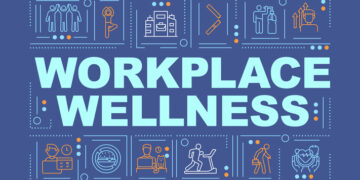Buyer Beware
Proceed with caution when dealing with these popular—and often confusing—wellness and health trends.
The only thing more daunting than embarking on a new, healthier lifestyle is trying to figure out what information you should believe. From day-time TV to Instagram personalities to the latest titles on the New York Times Best Sellers list, the number of opinions available today can be overwhelming—especially to those new to the wellness game.
Any program or piece of advice that prompts you to make a positive change is valuable, consumers should approach any program with a skeptical eye. “If something sounds too good to be true, it probably is,” explains Andrea Miller, a registered dietitian. “One of the things I often tell people is don’t ever make sweeping changes to your diet based on a single study.”
Of course, for the average person, it can be hard to break through the noise and determine if a headline is based on a wealth of information or a poorly designed, flimsy study, which is why Miller recommends working in tandem with your healthcare provider or registered dietitian before implementing any major adjustments to your eating patterns or way of life.

When it comes to the persuasive personalities that permeate your newsfeed promoting the latest health trend, you need to be equally cautious. But even if you consider yourself savvy to their game, you can still bind licensed, and in ways, you may not expect. As Timothy Caulfield, author of Relax, Dammit! A User’s Guide to the Age of Anxiety, notes, “If you went on the street and asked people, ‘Do you trust Gwyneth Paltrow? Do you think she’s a scientific expert?’ I think that most people would say no.
But [celebrities] have so much sway because of their exposure, and there is interesting research that says just being exposed to something enough—the illusory truth effect—makes it seem more real. ”Unsure as to whether a trendy diet is right for you, or if you should be hopping on the latest wellness bandwagon? We spoke to the experts for insights on which ones you may want to reconsider—when you should at least adjust your approach.
INTERMITTENT FASTING

This dietary concept, in which you refrain from eating for a specific number of hours each day or sometimes days each week, has been blowing up over the past few years, with everyone from athletes to celebrities claiming it has helped them feel better, perform better, and drop pounds. And though research has supported some of these benefits, this approach may not be right for everyone.
Miller notes that while intermittent fasting(IF) can help cut down on mindless evening snacking(since you generally have your last meal a few hours before bedtime), many who undertake an IF style of eating are more concerned with their quantity of food, not quality.
“I think people fail to realize [when undertaking IF] you have to be intentional about your food choices during the day to meet your nutrient requirements,” she says. This is seen most acutely in protein intake, as the body makes the best use of this macronutrient when it is spread evenly throughout the day as opposed to lumped into one meal, typical of the standard North American diet. (Think cereal in the morning, steak at night.) Working with a dietitian, she points out, can help you fill in these nutritional gaps.
VEGANISM
Speaking of lacking in nutrition, Miller sees many wannabe vegans approaching what should otherwise be a healthy diet—one that also has environmental benefits—in a completely unhealthy way. She notes that when you cut out meat and dairy, you will likely end up missing out on a plethora of vital nutrients such as calcium, iron, and vitamin D. “If you are removing animal products you need to know how to replace them with a plant-based alternative that is nutrient similar,” she explains; a doctor or dietitian can help put you on the right track.
CBD
 Caulfield has bad news regarding proponents of cannabidiol (CBD), an increasingly popular compound derived from cannabis that’s cropping up in everything from nutritional supplements to skincare products. “You can 100 percent ignore the hype,” he laughs, noting research on CBD is still in its infancy and what is available is still preliminary. “It’s something that has potential, and we do have to do research to determine what benefits may or may not exist, but right now the claims are ridiculous.”
Caulfield has bad news regarding proponents of cannabidiol (CBD), an increasingly popular compound derived from cannabis that’s cropping up in everything from nutritional supplements to skincare products. “You can 100 percent ignore the hype,” he laughs, noting research on CBD is still in its infancy and what is available is still preliminary. “It’s something that has potential, and we do have to do research to determine what benefits may or may not exist, but right now the claims are ridiculous.”
The “health halo” that surrounds CBD makes it tempting for some to jump on board without question, and the fact that it was once illegal in Canada (and still is in much of the United States and other areas of the world) gives it an “exotic” air, explains Caulfield. “The CBD industry has done a good job of marketing itself as part of the wellness trend. It’s a product that’s outside of big pharma,’ which is how it’s positioning itself—but of course, if it was effective it would be a pharmaceutical”.
Improve your Health Trends BS barometer
Simple steps to discerning fact from fiction.
1) Take a step back.
“I know it seems simple but really pause and think about the claim that is being made,” Caulfield suggests. Is the source trying to sell you something? Is there some sort of other bias, such as funds from an organization or company that might benefit from the results? This can help you focus on any warning signs that may indicate the headline isn’t the real story.
2) Correlation versus causation.

Caulfield points out that just because two things happen at the same time in a clinical setting, it doesn’t mean they are related. Media outlets will sometimes take conclusions like this from research that warrants further investigation and run with it.
3) Scrutinize the data.
Is the research conducted on humans or animals? If it’s the latter, Caulfield says the results likely won’t apply to humans, at least not without further investigation.
4) Focus on the big picture.
A single study, especially one that is conducted on a small number of subjects or on one demographic (gender, health history, etc.), doesn’t prove much. “Look to the body of evidence surrounding the topic,” says Caulfield
“ALL-NATURAL” CLAIMS
This may be one of the biggest ways today’s consumers are being bamboozled, says Caulfield. “There’s evidence to show that just slapping the word ‘natural something can make it seem more attractive,” when in reality it’s pretty meaningless, he notes.
Other terms that may lead you astray: organic (aside from sustainability issues, there is little evidence to support the belief that eating organic is inherently healthier, according to Caulfield),non-GMO, gluten-free (“If you have a clinically defined reason to go gluten-free, go gluten-free—but about a third of the population think it’s healthier,” he says), detox, and immunity-boosting. If you are looking to eat a more “natural” diet, ditch packaged products and focus on fresh fruits, vegetables, and meats—luckily, sometimes the correct course of action also happens to be simple.
















